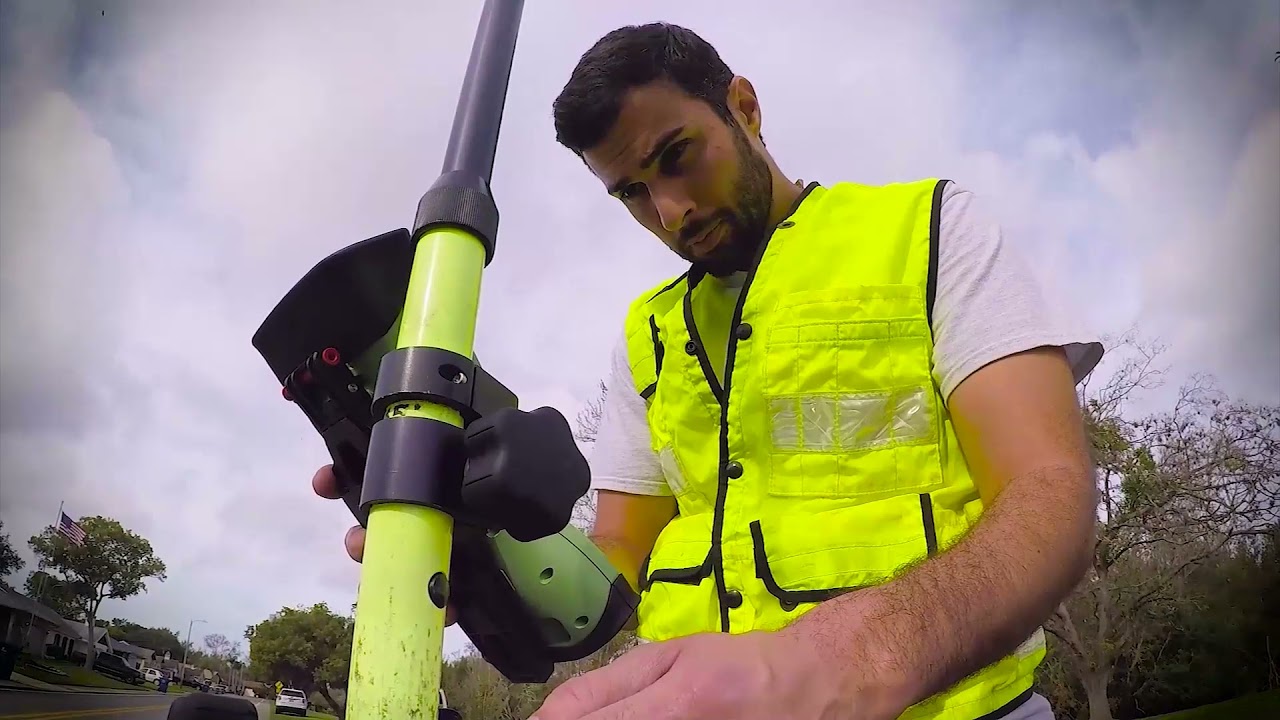In an era where environmental concerns and sustainable practices are at the forefront of global discussions, the field of water supply has emerged as a promising careerpath. The demand for clean water is ever-increasing, and professionals in this sector play a vital role in ensuring the availability and quality of this essential resource. In this article, we will explore the reasons why is water supply a good career path.
Is Water Supply A Good Career Path?

Is Water Supply A Good Career Path?
Water supply can be a good career path for several reasons:
- Growing demand and global significance - Access to clean water is a fundamental human right, and the demand for clean water is constantly increasing due to population growth and urbanization. By working in water supply, you can contribute to addressing the global water crisis and ensuring the availability of safe drinking water for communities.
- Job security and stability -Water is an essential resource, and the need for professionals in the water supply industry remains constant. Regardless of economic fluctuations, the demand for skilled water supply professionals persists, providing job security and stability.
- A diverse range of opportunities -The water supply industry offers a wide range of career opportunities across various sectors. You can work in governmental organizations, environmental agencies, research institutions, engineering firms, or non-profit organizations dedicated to water conservation and management. This diversity allows you to find a niche that aligns with your skills and interests.
- Technological advancements and innovation -The field of water supply has witnessed significant technological advancements, ranging from advanced water treatment technologies to sophisticated monitoring systems. By embracing these innovations, professionals can optimize processes, improve water quality, and enhance overall efficiency.
- Collaboration and interdisciplinary work -Addressing water supply challenges requires collaboration among professionals from various disciplines, such as engineers, environmental scientists, policymakers, and community members. This interdisciplinary nature of the field fosters a stimulating work environment and provides opportunities for continuous learning and professional growth.
- Contribution to environmental stewardship -Working in the water supply sector allows you to promote responsible water management practices, conserve resources, and safeguard water ecosystems. By doing so, you become an environmental steward, contributing to the preservation of our planet's natural resources.
Types Of Careers In The Water Industry

Careers in the Water Industry
The water industry offers a wide range of careers across various sectors. Here are some common types of careers in the water industry:
- Water Resource Engineer -Water resource engineers design and implement systems for managing water resources. They work on projects related to water supply, water treatment, irrigation systems, flood control, and watershed management.
- Water Treatment Plant Operator -Water treatment plant operators oversee the operation and maintenance of water treatment facilities. They ensure that water is treated and purified to meet quality and safety standards before distribution to consumers.
- Hydrologist -Hydrologists study the movement, distribution, and quality of water on the Earth's surface. They analyze data and develop models to understand and manage water resources, including assessing water availability, studying groundwater systems, and predicting flood or drought events.
- Water Quality Specialist -Water quality specialists monitor and assess the quality of water sources, treatment processes, and distribution systems. They conduct laboratory tests, collect samples, analyze data, and ensure compliance with water quality regulations.
- Environmental Scientist -Environmental scientists working in the water industry focus on studying and managing the impact of human activities on water resources and ecosystems. They assess water quality, conduct environmental impact assessments, develop conservation plans, and implement strategies for environmental sustainability.
- Water Conservation Specialist -Water conservation specialists promote and implement water conservation programs and initiatives. They educate the public about water-saving practices, conduct water audits, develop water conservation policies, and collaborate with communities to reduce water consumption.
- Water Distribution Manager -Water distribution managers oversee the operation and maintenance of water distribution systems. They ensure the efficient delivery of water to consumers, manage pipeline networks, address infrastructure issues, and coordinate emergency response in case of water supply disruptions.
- Water Policy Analyst -Water policy analysts work on developing and analyzing policies related to water management, conservation, and sustainability. They research and assess water-related regulations, propose policy recommendations, and contribute to strategic planning for water resource management.
- Water Researcher -Water researchers focus on conducting scientific research to improve water management practices. They investigate new technologies, study water treatment methods, analyze water quality data, and contribute to advancements in the field of water supply and conservation.
- Water Project Manager -Water project managers oversee the planning, implementation, and coordination of water-related projects. They work on infrastructure development, water treatment plant construction, pipeline installation, and other initiatives aimed at improving water supply and management.
Best-Paying Jobs In Water Supply
In the water supply industry, several roles offer competitive salaries. While the specific salary levels can vary depending on factors such as location, experience, and organization, here are some of the best-paying jobs in water supply:
- Water Resource Engineer- Water resource engineers work on the planning, designing, and management of water supply systems. They ensure efficient water usage, conduct feasibility studies, and develop sustainable water resource management strategies. Average salary - $85,000 - $110,000 per year.
- Water Treatment Plant Manager- Water treatment plant managers oversee the operations of water treatment facilities. They are responsible for ensuring water quality, supervising staff, managing budgets, and maintaining regulatory compliance. Average salary: $75,000 - $100,000 per year.
- Hydrologist- Hydrologists study the distribution, movement, and quality of water resources. They collect and analyze data to develop models and strategies for water resource management. Hydrologists often work for government agencies, consulting firms, or research institutions. Average salary: $70,000 - $90,000 per year.
- Environmental Engineer - Environmental engineers work on projects related to water treatment, pollution control, and environmental sustainability. They develop and implement solutions to protect water resources and ensure compliance with environmental regulations.Average salary: $70,000 - $90,000 per year.
- Water Quality Specialist- Water quality specialists monitor and analyze water samples to assess and maintain water quality standards. They work in laboratories or field settings, conducting tests and providing recommendations for water treatment and management. Average salary: $60,000 - $80,000 per year.
- Water/Wastewater Operations Manager- Operations managers oversee the day-to-day activities of water and wastewater treatment plants. They ensure efficient operation, troubleshoot issues, manage staff, and coordinate maintenance activities. Average salary: $60,000 - $80,000 per year.
- Water Distribution System Manager- Distribution system managers are responsible for managing the infrastructure that delivers water to consumers. They oversee maintenance, repairs, and upgrades to ensure reliable water distribution. Average salary: $55,000 - $75,000 per year.
Entry-Level Jobs In Water Supply
Entry-level positions in the water supply industry provide valuable opportunities for individuals starting their careers. While specific job titles and responsibilities may vary, here are some common entry-level jobs in water supply:
- Water Treatment Operator -Entry-level water treatment operators assist in the operation and maintenance of water treatment plants. They learn about the treatment processes, perform routine tasks, monitor equipment, and assist senior operators in ensuring the quality and safety of the treated water.
- Water Distribution Technician -Water distribution technicians support the maintenance and repair of water distribution systems. They assist in identifying and resolving issues related to pipelines, valves, meters, and hydrants. This role involves conducting inspections, performing basic repairs, and assisting with system maintenance.
- Laboratory Technician -Entry-level laboratory technicians work in water quality laboratories, assisting in sample collection, testing, and analysis. They perform basic laboratory techniques, handling equipment, and assist in generating reports. This role provides hands-on experience in water quality monitoring and analysis.
- Field Technician -Field technicians work on-site, assisting with various tasks related to water supply infrastructure. They assist in conducting inspections, monitoring water resources, collecting data, and maintaining equipment. Field technicians often work closely with engineers and senior technicians.
- Water Conservation Specialist -Entry-level water conservation specialists support water conservation initiatives and public outreach campaigns. They assist in conducting water audits, promoting water-saving practices, and educating the public on water conservation measures. This role involves data collection, customer engagement, and assisting in the development of water conservation plans.
- Water Resources Technician -Water resources technicians provide support in managing and monitoring water resources. They assist in data collection, hydrologic modeling, and analysis. This role involves fieldwork, data entry, and working with hydrologists and environmental scientists.
- Water Quality Technician -Entry-level water quality technicians assist in monitoring and testing the quality of water sources, treatment processes, and distribution systems. They perform basic laboratory tests, collect samples, and assist in data analysis. This role provides hands-on experience in water quality assessment and monitoring.
Why Choose A Career In Water Supply?

Careers in Water Management
Choosing a career in water supply can be a fulfilling and rewarding choice for several reasons:
- Addressing the global water crisis -Water scarcity and quality issues affect communities worldwide. By working in the water supply industry, you can play a direct role in addressing these challenges and ensuring the availability of clean and safe water for people and ecosystems.
- Job stability and security -Water is an essential resource, and the demand for professionals in the water supply sector remains constant. This provides job stability and security, even during economic fluctuations, as the need for water professionals continues to exist.
- Diverse career opportunities -The water supply industry offers a wide range of career paths. Whether you're interested in engineering, environmental science, policy-making, research, or operations, there are numerous opportunities to match your skills, interests, and passion.
- Technological advancements and innovation -The water supply industry is continuously evolving, driven by technological advancements and innovation. By working in this field, you can be at the forefront of implementing new technologies and solutions to improve water treatment, distribution, and management practices.
- Collaborative and interdisciplinary work -Solving water supply challenges requires collaboration among professionals from various disciplines, including engineering, science, policy, and community engagement. Working in this industry allows you to collaborate with experts from diverse backgrounds, fostering a stimulating and enriching work environment.
- Contribution to environmental sustainability -Water is a precious resource, and a career in water supply provides an opportunity to contribute to environmental sustainability. By implementing sustainable practices, promoting water conservation, and addressing pollution and contamination issues, you can actively contribute to the preservation of our ecosystems.
- Making a positive impact on communities -Access to clean water is vital for public health, economic development, and social well-being. By working in water supply, you have the chance to directly impact communities by ensuring access to safe drinking water, improving sanitation, and promoting equitable water distribution.
- Lifelong learning and professional growth -The water supply industry is dynamic and ever-evolving. New challenges and technologies continually emerge, offering opportunities for learning and professional growth. Whether through certifications, advanced degrees, or staying updated with industry trends, you can continuously enhance your skills and knowledge.
Education And Certification Requirements For A Career In Water Supply
A career in water supply typically requires a combination of education and certifications. Here are the general education requirements and certifications commonly sought in this field:
Education Requirements
- Bachelor's Degree- Many entry-level positions in water supply require a bachelor's degree in a relevant field. Common majors include civil engineering, environmental engineering, environmental science, water resources management, chemistry, and biology. A bachelor's degree provides a solid foundation of knowledge in water supply principles and practices.
- Advanced Degrees- Some positions, particularly those involving research, management, or specialized roles, may require advanced degrees such as a master's or doctoral degree. Advanced degrees can enhance career prospects and offer opportunities for more advanced roles in the water supply industry.
Certifications
- Water Treatment and Distribution Certification- Many water supply professionals obtain certifications related to water treatment and distribution. These certifications validate the individual's knowledge and skills in operating water treatment plants and distribution systems. Certifications are typically offered by professional organizations, state agencies, or water industry associations. Examples include the Water Treatment Operator certification (e.g., Grade 1-4) and the Distribution System Operator certification.
- Professional Engineer (PE) License- For individuals aspiring to become water resource engineers or work in engineering roles, obtaining a Professional Engineer (PE) license is often desirable. This license signifies the engineer's competency and ability to oversee and approve engineering projects. Requirements for obtaining a PE license vary by jurisdiction but generally involve completing an accredited engineering program, passing the Fundamentals of Engineering (FE) exam, gaining relevant work experience, and passing the Professional Engineering (PE) exam.
- Water Quality Certifications- Professionals specializing in water quality may pursue certifications specific to water analysis, laboratory techniques, and water quality management. These certifications demonstrate proficiency in analyzing and interpreting water quality data and ensuring compliance with regulatory standards. Examples include the American Water Works Association (AWWA) Water Quality Analyst certification and the National Environmental Laboratory Accreditation Program (NELAP) certifications.
- Leadershipand Management Certifications - As professionals progress in their careers and take on managerial or leadership roles, certifications in leadership and management can be beneficial. These certifications provide training in areas such as project management, team leadership, and organizational skills. Examples include the Project Management Professional (PMP) certification and the Certified Manager (CM) certification.
It's important to note that specific education and certification requirements can vary depending on the job position, jurisdiction, and organization. Additionally, continuing education and professional development are essential in the water supply industry to stay updated with new regulations, technologies, and best practices.
What Do People Working In Water Supply Do?
People working in water supply perform a wide range of tasks and responsibilities depending on their specific roles and areas of expertise. Here are some common activities and responsibilities of professionals working in water supply:
Water Treatment And Distribution
Professionals involved in water treatment and distribution ensure the availability of safe and clean water to consumers. Their responsibilities may include:
- Operating and maintaining water treatment plants.
- Monitoring and adjusting water treatment processes to ensure water quality meets regulatory standards.
- Conducting laboratory tests to analyze water samples for contaminants.
- Inspecting and maintaining water distribution systems, including pipelines, pumps, and storage tanks.
- Responding to and resolving water quality or distribution issues.
Water Resource Management
Professionals specializing in water resource management focus on sustainable and efficient water use. Their tasks may involve:
- Assessing water availability and conducting hydrological studies.
- Developing water management plans and policies.
- Evaluating and implementing water conservation measures.
- Monitoring and managing water resources to maintain ecological balance.
- Collaborating with stakeholders to develop water allocation strategies.
Engineering And Design
Water supply engineers and designers play a critical role in planning and developing water infrastructure. Their responsibilities include:
- Designing and constructing water treatment plants, distribution networks, and storage facilities.
- Conducting feasibility studies and site evaluations for new water projects.
- Utilizing computer-aided design (CAD) software to create engineering plans and models.
- Ensuring compliance with engineering standards, codes, and regulations.
- Managing construction projects and overseeing contractors.
Water Quality Monitoring And Analysis
Professionals involved in water quality monitoring and analysis focus on assessing and maintaining water quality standards. Their tasks may include:
- Collecting water samples from various sources for laboratory analysis.
- Performing chemical, physical, and microbiological tests to assess water quality.
- Analyzing data and generating reports on water quality parameters.
- Monitoring water treatment processes to ensure effective removal of contaminants.
- Implementing quality control measures to maintain compliance with regulations.
Research And Development
Professionals engaged in water supply research and development contribute to advancements in the field. Their responsibilities may include:
- Conducting studies and experiments to improve water treatment technologies.
- Developing innovative solutions for water conservation and efficiency.
- Investigating emerging contaminants and their impact on water quality.
- Collaborating with universities, research institutions, and industry partners.
- Publishing research findings and presenting at conferences.
Regulatory Compliance And Policy Development
Professionals involved in regulatory compliance and policy development ensure adherence to water supply regulations and develop effective policies. Their tasks may involve:
- Interpreting and implementing water supply regulations and standards.
- Conducting inspections and audits to ensure compliance.
- Collaborating with government agencies and stakeholders to develop water policies.
- Participating in public hearings and providing technical expertise.
- Reviewing and evaluating proposed regulations or policy changes.
These are just a few examples of the tasks and responsibilities of professionals working in water supply. The field is diverse, encompassing various disciplines and specialties, all focused on ensuring the provision of clean and safe water to communities.
People Also Ask
What Qualifications Do I Need To Work In Water Supply?
To work in water supply, a common requirement is a bachelor's degree in a relevant field such as civil engineering, environmental science, water resources management, or a related discipline. Some positions may require advanced degrees or specialized certifications, depending on the specific role and organization.
What Skills Are Important For A Career In Water Supply?
Strong analytical and problem-solving skills are crucial for assessing and addressing water-related issues. Good communication skills are necessary for effectively collaborating with team members, stakeholders, and the public. Technical skills in areas such as water treatment, distribution systems, and data analysis are also valuable.
Is A Career In Water Supply Financially Rewarding?
A career in the water supply can be financially rewarding, with salaries varying depending on factors such as job position, level of experience, geographic location, and industry sector. Generally, water supply professionals earn competitive salaries that reflect the importance and demand for their expertise.
How Can I Contribute To Solving Water Supply Challenges In My Career?
There are several ways to contribute to solving water supply challenges in a career in this field. By implementing sustainable water management practices, designing efficient distribution systems, and promoting water conservation, professionals can directly impact communities and contribute to solving water-related issues.
Conclusion
Choosing a career in the water supply can be a wise and rewarding decision in today's world. With the pressing need to address the global water crisis, the field offers individuals the chance to make a tangible impact on communities and contribute to sustainable water management. Furthermore, the advancements in technology and the interdisciplinary nature of the work create an environment of constant learning and growth.
